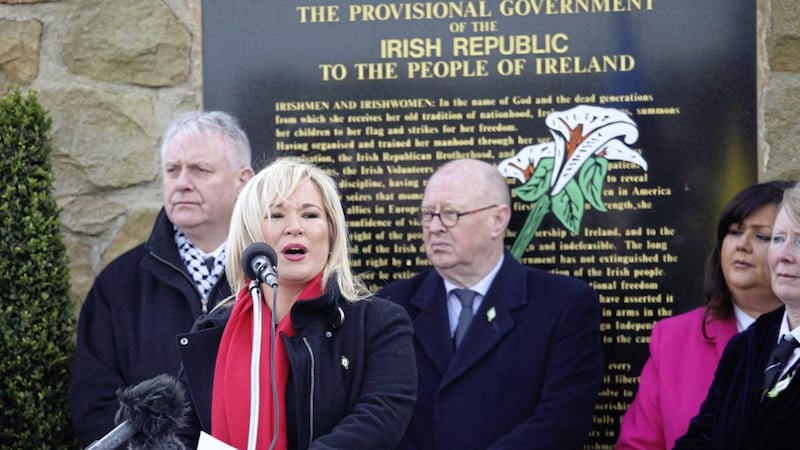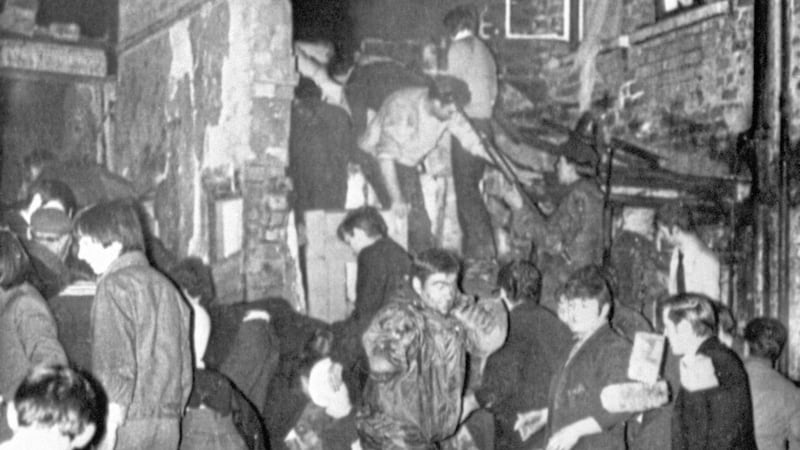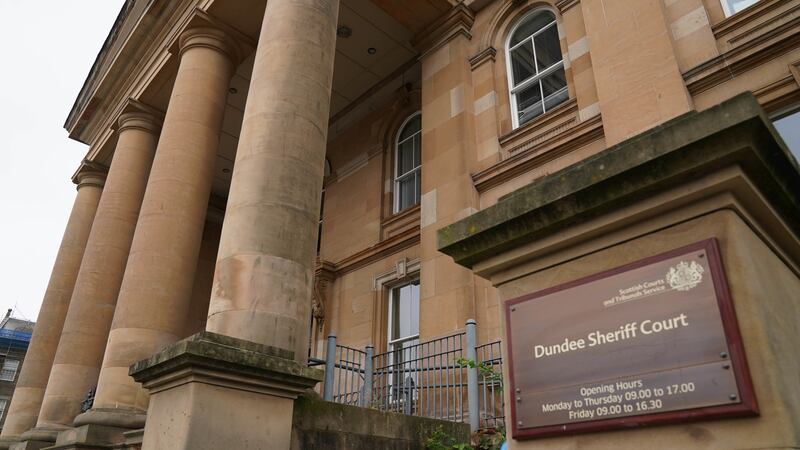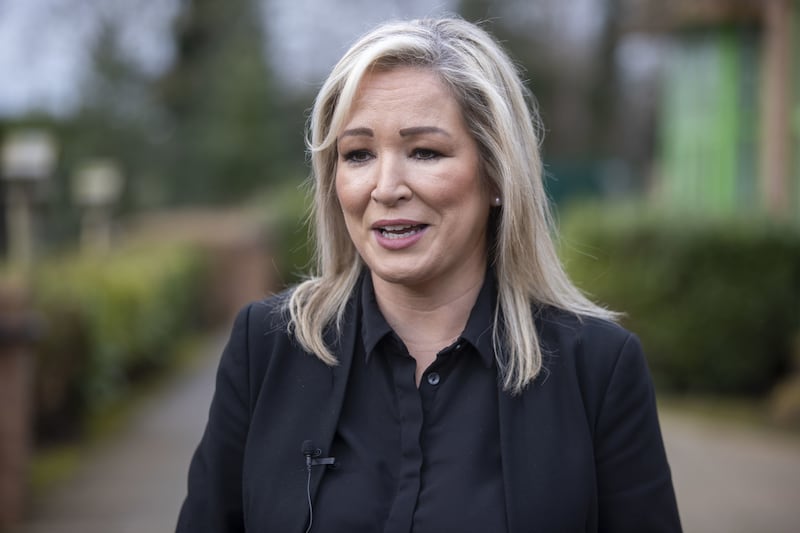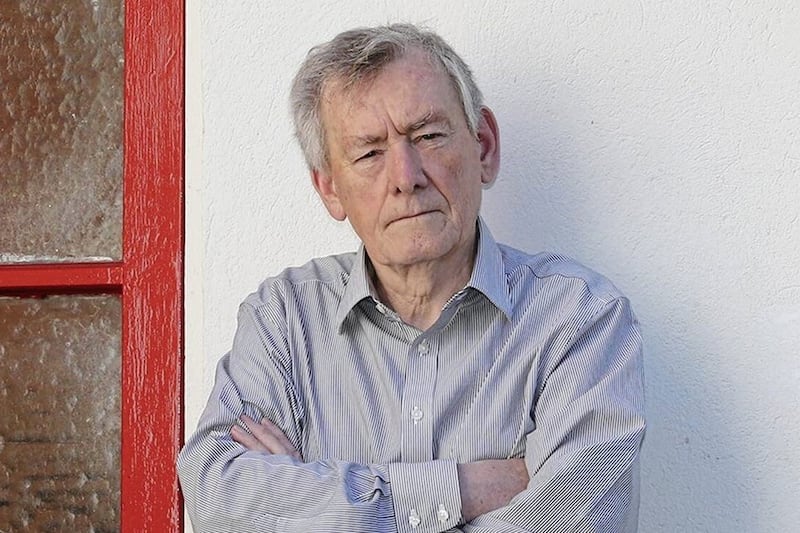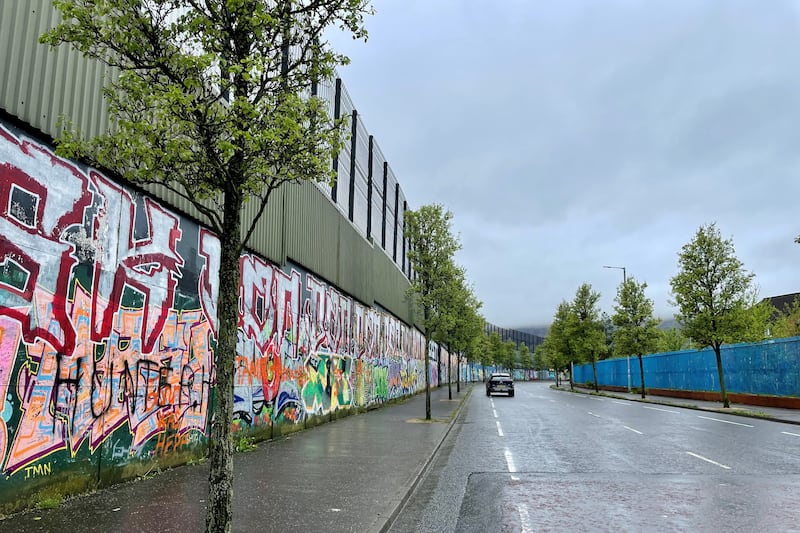SINN Féin's northern leader yesterday renewed a call for a referendum on Irish unity within the next five years.
Michelle O'Neill was addressing the main commemoration in Belfast yesterday to mark the 102nd anniversary of the Easter Rising.
The Sinn Féin deputy leader said ending partition had taken on "a new dynamic" because of Brexit.
Large crowds lined the Falls Road in west Belfast as the National Graves Association parade, headed by several black taxis and participants in 1916-style dress, left Beechmount Avenue en route to the republican plot at Milltown Cemetery.
The Sinn Féin vice president walked the route alongside veteran republican Joe Austin, while former Sinn Féin president Gerry Adams walked a few paces behind.
Relatives of some of those involved in the 1916 Rising, including Donna Dougall, the great-granddaughter of James Connolly, were also in attendance.
At Milltown, Ms O'Neill told the crowds that this year marked a "number of very significant anniversaries" including the centenary of the suffragette movement, 50 years since the civil rights campaign and the 20th anniversary of the Good Friday Agreement.
She said that while the 1998 agreement had offered "hope of a new future", it was now "under attack by some within the DUP and the British Tory party, because they did not sign up to it (and) don't believe in what it represents".
Commenting on the most recent collapse of negotiations to restore devolution in February, Ms O'Neill said the DUP had "failed to deliver" a draft agreement and "chose to withdraw from the talks".
"For now, just for now, they are under no pressure from the British government to move, because Theresa May is in hock to the DUP," she said.
"Much hurt has been caused and real pain inflicted on all sides of the community. It takes time to heal those wounds and to build a new society together where we respect each other.
"But I need a unionist leader who is up for that also, so that together we can serve the entire community fairly.
"I will not lead an unjust government which denies citizens their rights - so we need to remove those obstacles to fix that," added Ms O'Neill, citing the disagreements over an Irish Language Act, same-sex marriage and funding for legacy inquests.
Calling for a vote on Irish unity "within the next five years", Ms O'Neill said Brexit had exposed the "undemocratic nature of partition".
"I am confident as the consequences of Brexit become clearer and as we get closer to the withdrawal stage that more people from a unionist background – will be open to the idea of exploring new relationships on our island, and between Ireland and Britain," she said.
"Therefore, we need to listen and understand unionists' fears and reassure the unionist people of their place in an agreed Ireland.
"They too must belong, not as a minority, but as equals," added Ms O'Neill.
Sinn Féin's vice-president also urged the Taoiseach Leo Varadkar to expel the Israeli Ambassador to Ireland in the wake of the killing and wounding of Palestinian protesters in Gaza.
"The international community looks on as the rule of law is openly flouted," she said.
Meanwhile, speaking at an Easter Rising commemoration in Castlewellan, Sinn Féin's national chairperson, Declan Kearney said that the party aims to be in government both north and south of the Irish border.
He also said that republicans "seek authentic reconciliation with unionism".
"A new phase of the peace process based upon reconciliation and healing must be our future," he said.
